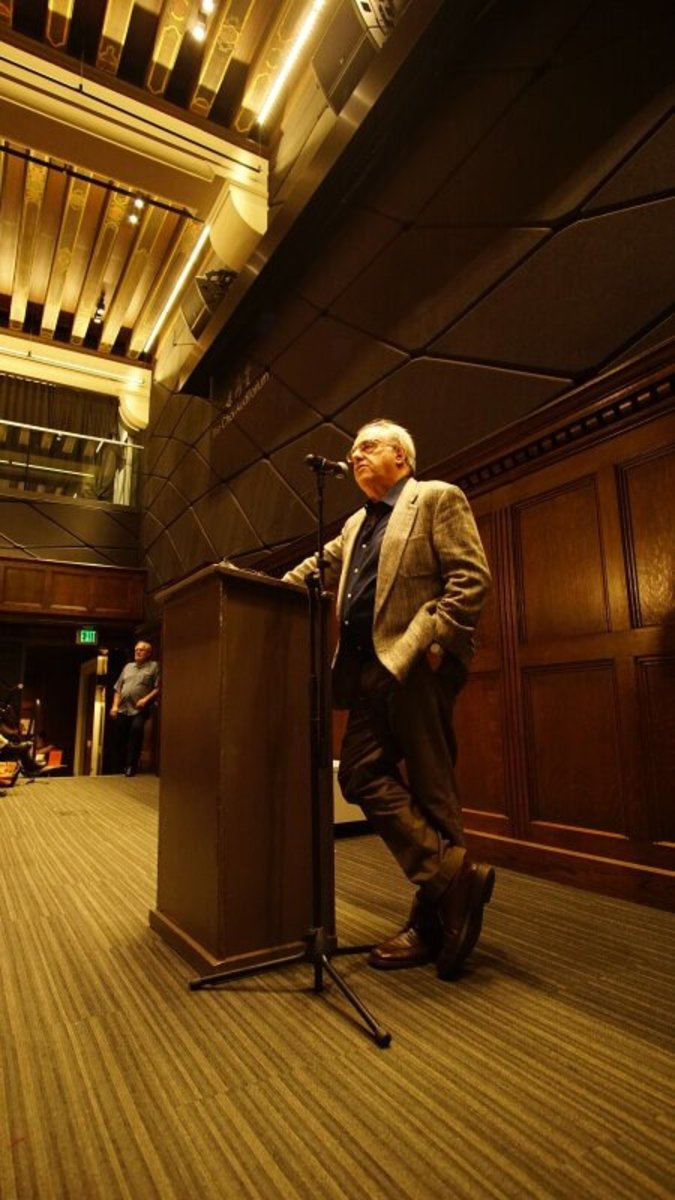To the enthusiastic applause of a crowd who appeared familiar with his work, Wolff took to the podium to air a brief disclaimer before beginning his talk:
“The conditions of our economic situation are not something I am responsible for,” he joked.
His talk, entitled “Trump, Capitalism’s Crisis, and a New Way Forward,” went on to address themes of socialism and to assert the need for a paradigm shift away from viewing capitalism as the end-all, be-all of the world economic order.
“The problem we live in is that this system is not only not working, it’s breaking down,” Wolff explained.
Wolff reiterated throughout the talk that economic systems throughout history have lived and died — why not capitalism? He challenged the audience to consider this question, to picture the timelines of systems like American slavery and feudalism, then to ask themselves: where are we in capitalism’s timeline?
“It’s dying, and the question is whether it’s gonna take us all down with it,” Wolff said.
His lecture broke down complex economic concepts in way that was digestible for those unfamiliar, and he wrangled the daunting notion of a society teetering on the edge of economic collapse while providing enthusiasm and optimism for what may come afterward. According to Wolff, people only search for an alternative when they are made aware of the impending death of a system, so discussing capitalism’s decline and introducing people to the possibility of viable alternatives is key in rallying support for a new economic system.
Wolff also touched on the relationship between capitalism and American identity, imploring the audience to consider whether loyalty as an American is predicated on support of a capitalist system. If we allow ourselves to entertain the idea of an America freed from the unsustainable suffocation of capitalism, we are more likely to bring a new system into being.
Education plays a key role in the proliferation or failure of economies, and Wolff shared that despite this, only 1 out of all 50 states increased funding for public higher education in recent years. He pointed to Germany as an example of a country with free university and a robust and stable economy. He also criticized his own education as an example of American capitalist indoctrination; throughout his time at Harvard, Stanford and Yale, Wolff said, he was not required to read a single word of Karl Marx.
Wolff taught Marxian economics at the University of Massachusetts, Amherst from 1973 to 2008. He was granted tenure there when he was just 27 years old. Wolff is the host of a weekly radio show and frequently speaks at colleges, high schools and union meetings.
“The enthusiasm of the American people for fundamental economic change has never been greater than it is today,” Wolff declared. “The window for real change is open.”

 Photos by Erin London
Photos by Erin London
Showing 2 reactions
Sign in with